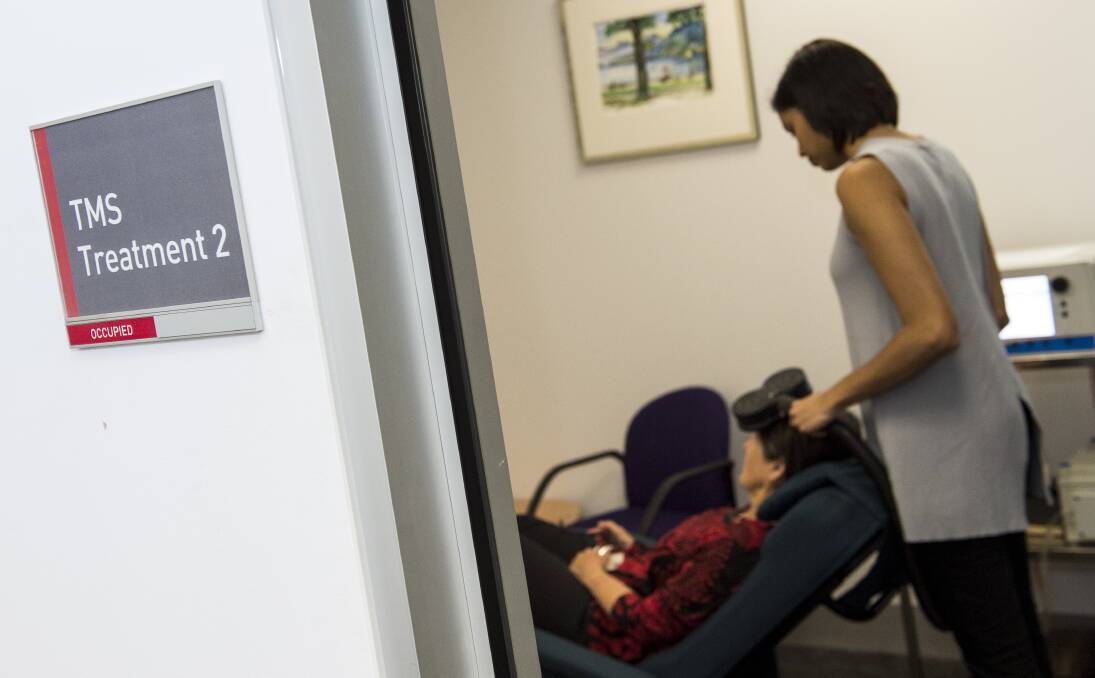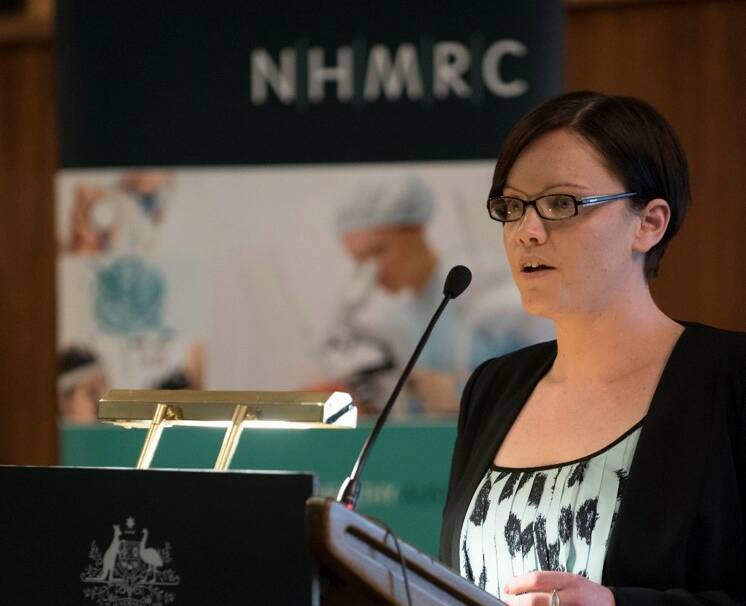Volunteers needed to take part in trial of new Alzheimer's treatment

Researchers investigating the benefits of using magnetic pulses to stimulate brain cells for people with Alzheimer's disease are calling for participants.
The Epworth Centre for Innovation in Mental Health (ECIMH), a Monash University and Epworth HealthCare research centre, is examining if Transcranial Magnetic Stimulation, or TMS, can improve the cognitive symptoms of mild to moderate Alzheimer's disease such as memory and thinking difficulties.
Associate Professor and Clinical Neuropsychologist Kate Hoy, who is heading up the research, said TMS was a form of non-invasive brain stimulation that's been used for more than 20 years to treat depression.
"It's a safe and effective treatment for that condition and we are now investigating if it could also be used in the treatment of Alzheimer's disease," she said.
Associate Professor Hoy said previous research found people treated for depression with TMS sometimes also experienced improved thinking, concentration and attention.
"I became very interested in that because in my work as a clinical neuropsychologist I see a lot of patients with memory problems and there was not very much that we could do to help them," she said.
"So we began investigating if TMS could be used to treat cognitive disorders and inevitably that led us to dementia which is really one of the most debilitating cognitive disorders there are."

The treatment involves a coil being placed on the patient's head while they are seated comfortably in a chair. The coil's magnetic field increases activity in the brain cells underneath it.
"It uses a magnetic pulse which passes freely into the brain and causes the brain cells to fire up, essentially becoming more active," said Associate Professor Hoy.
"When we are applying TMS in the treatment course we are applying tens of thousands of pulses over a period of up to six weeks - depending on the trial - that causes the cells to fire over and over again.
"What that does is strengthen the brain cells and the connections between them and over time you can end up with a strengthened network.
"In Alzheimer's one of the things we know is that the cognitive symptoms are likely to be related to the cognitive dysfunction or connectivity within those networks.
"Basically the brain cells aren't talking to each other very well any more. The TMS gets them talking to each other again."
One of the advantages of using TMS to treat Alzheimer's, if it is eventually found to be effective, would be the potential accessibility of the treatment, said Associate Professor Hoy.
She said there was already a strong network of clinics able to deliver TMS treatment because of its long-time successful use for treating depression.
"There are a growing number of clinics around Australia that provide TMS for depression so if future research found it was effective the clinical infrastructure would already be set up."
To be eligible to take part in the trial, participants need to be aged 50 to 95 with a diagnosis of mild to moderate Alzheimer's disease.
The centre is also investigating other forms of brain stimulation for treating Mild Cognitive Impairment and mild Alzheimer's disease, including a home-based treatment.
For information on any of these trials, email ccs-alzheimers-trial@monash.edu or phone (03) 9805 4346. Or you can head online .
This is sponsored content for the Epworth Centre for Innovation in Mental Health.


